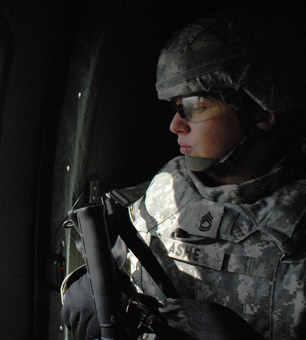The suicide rate among the nation’s active-duty military personnel has spiked this year, eclipsing the number of troops dying in battle and on pace to set a record annual high since the start of the wars in Iraq and Afghanistan more than a decade ago, the Pentagon said Friday.
Suicides have increased even as the United States military has withdrawn from Iraq and stepped up efforts to provide mental health, drug and alcohol, and financial counseling services.
The military said Friday that there had been 154 suicides among active-duty troops through Thursday, a rate of nearly one each day this year. The figures were first reported this week by The Associated Press.
That number represents an 18 percent increase over the 130 active-duty military suicides for the same period in 2011. There were 123 suicides from January to early June in 2010, and 133 during that period in 2009, the Pentagon said.
By contrast, there were 124 American military fatalities in Afghanistan as of June 1 this year, according to the Pentagon.
Suicide rates of military personnel and combat veterans have risen sharply since 2005, as the wars in Iraq and Afghanistan intensified. Recently, the Pentagon established a Defense Suicide Prevention Office.
On Friday, Cynthia Smith, a Defense Department spokeswoman, said the Pentagon had sought to remind commanders that those who seek counseling should not be stigmatized.
“This is a troubling issue, and we are committed to getting our service members the help they need,” she said. “I want to emphasize that getting help is not a sign of weakness; it is a sign of strength.”
In a letter to military commanders last month, Defense Secretary Leon E. Panetta said that “suicide prevention is a leadership responsibility,” and added, “Commanders and supervisors cannot tolerate any actions that belittle, haze, humiliate or ostracize any individual, especially those who require or are responsibly seeking professional services.”
But veterans’ groups said Friday that the Pentagon had not done enough to moderate the tremendous stress under which combat troops live, including coping with multiple deployments.
“It is clear that the military, at the level of the platoon, the company and the battalion, that these things are not being addressed on a compassionate and understanding basis,” said Bruce Parry, chairman of the Coalition of Veterans Organizations, a group based in Illinois. “They need to understand on a much deeper level the trauma the troops are facing.”
Paul Rieckhoff, executive director of Iraq and Afghanistan Veterans of America, called suicides among active-duty military personnel “the tip of the iceberg.” He cited a survey the group conducted this year among its 160,000 members that found that 37 percent knew someone who had committed suicide.
Mr. Rieckhoff attributed the rise in military suicides to too few qualified mental health professionals, aggravated by the stigma of receiving counseling and further compounded by family stresses and financial problems. The unemployment rate among military families is a particular problem, he said.
“They are thinking about combat, yeah, but they are also thinking about their wives and kids back home,” he said.
Join us in defending the truth before it’s too late
The future of independent journalism is uncertain, and the consequences of losing it are too grave to ignore. To ensure Truthout remains safe, strong, and free, we need to raise $43,000 in the next 6 days. Every dollar raised goes directly toward the costs of producing news you can trust.
Please give what you can — because by supporting us with a tax-deductible donation, you’re not just preserving a source of news, you’re helping to safeguard what’s left of our democracy.
